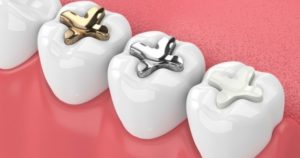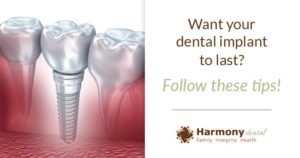Options for Missing Teeth – Which is Right For You?

If you are dealing with missing teeth, you’ll understand the many problems they can cause. Eating certain foods is almost impossible, and you just don’t like the way you look when you smile. Photos are out of the question!
Fortunately, there are many excellent options available for replacing missing teeth. But which is the right one for you? We will discuss the three most common options and the benefits of each one. But first, let’s talk about why you should replace your missing teeth instead of just living with the “gaps.”
Why replace missing teeth?
Replacing missing teeth is important. Besides helping you to chew and speak clearly, teeth serve as placeholders. When one or more of those placeholders are missing, the surrounding teeth start to move. Eventually, you wind up with bite problems because your teeth no longer line up correctly.
Also, the gum tissue and bone beneath the gaps left by missing teeth will start to deteriorate, making the surrounding teeth weaker. This weakening can eventually lead to further tooth loss. Really, every tooth counts!
Options for single or multiple missing teeth
The best option for replacing your missing teeth depends on your budget, oral health, and personal choice. Depending on your circumstances, your dentist will likely recommend one of these three primary options to replace a single tooth or multiple teeth:
- Implants: An artificial replacement root is placed in the jaw bone and capped with a porcelain crown.
- Fixed bridges: A row of artificial teeth are held in place utilizing bonding or cementing to surrounding teeth.
- Dentures: An entire arch of teeth, upper or lower, are replaced with a prosthetic embedded with replacement teeth.
Each of these options involves a very different dental process, treatment time, and cost. They are all designed to provide lasting, natural-looking results.
Implants:
Advantages: Implants provide one of the best options for restoring functionality, comfort, and esthetics. Surrounding teeth are not altered during implant placement, so there is no need to damage any healthy teeth. Also, implants are known for outstanding durability, even lasting decades.
One critical advantage is that they help to prevent bone loss because they use a root replacement. Some dentists have the ability to create and place dental implants in a single visit to their office! Ask your dentist about this option.
Fixed bridges:
Advantages: Dental implants require healthy and adequate bone tissue, so they are not right for everyone. A fixed bridge is another option, looking and functioning like natural teeth. Since the bridge is set permanently in place, it doesn’t need removing for cleaning, and you don’t need to worry about “slippage.” Also, if budget is a consideration, a fixed bridge costs less than dental implants.

Dentures
Advantages: When all of the upper or lower teeth need replacing, dentures are certainly the least expensive option. They are removable for brushing and cleaning, and for repairs. Dentures made with modern materials look very natural and function just like your own teeth. Another option, available because of advanced technology, are implant-retained dentures or overdentures that are fixed permanently in place.
The choice is yours!
Each option restores your ability to eat what you want and to smile with confidence. You will need to consider which will fit in with your budget, schedule availability, and the state of your oral health. Talk to Dr. da Costa about which option would work best for your unique circumstances.
Re-posted with permission. Source.


